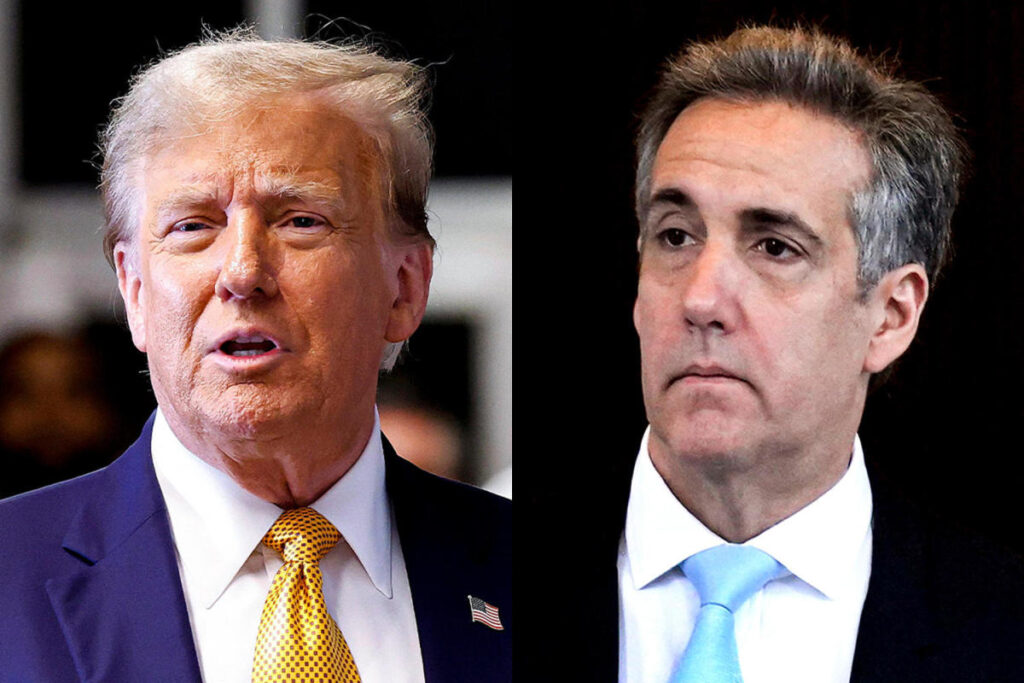On Monday, the Supreme Court declined to entertain disbarred lawyer Michael Cohen’s last-ditch attempt to revive his civil rights claim against former President Donald Trump. The Court’s decision reaffirmed lower court rulings that barred Cohen from pursuing allegations that Trump and other officials had violated his rights by relegating him to solitary confinement after he published a tell-all book. In 2020, while serving a three-year sentence for various offenses tied to his work for Trump, Cohen faced a return to prison from home confinement amidst the COVID-19 pandemic due to his refusal to adhere to a protocol restricting his communication with the press and social media. Following a stint of 16 days in solitary, a federal judge ordered his release, agreeing that Cohen’s treatment constituted retaliation infringing upon his free speech rights.
Armed with this ruling, Cohen initiated a lawsuit against Trump and other officials, seeking damages grounded in his assertion of an unreasonable search and seizure violation as per the Fourth Amendment of the Constitution. Cohen’s legal battle underscored the challenges of bringing constitutional claims against individual federal officials, a struggle complicated by a series of Supreme Court decisions that have tightened the standards for such claims since the landmark 1971 precedent of Bivens v. Six Unknown Named Agents of the Federal Bureau of Narcotics that initially permitted them. Cohen recently expressed concerns about the implications of Trump’s potential reelection in November, warning that the former President may escalate efforts to stifle dissent unless significant deterrents are established.
In the aftermath of the Supreme Court’s decision to decline Cohen’s case, he lamented the erosion of constitutional rights in an official statement, criticizing the current political landscape where citizens could face incarceration under the influence of a "corrupt president." He emphasized that the fundamental rights which sustain America’s democratic ideals are in jeopardy, alluding to the diminishing boundaries that safeguard free expression and personal liberty. His remarks reflect deep-seated concerns over political accountability and power, illustrating a significant discord between the legal system’s operation and the safeguarding of civil rights.
The Court’s recent trends signal a growing difficulty in pursuing constitutional claims against individual federal officials. This trajectory was notably reinforced in the 2022 ruling in Egbert v. Boule, which effectively curtailed the viability of Bivens claims by dismissing allegations against a Border Patrol agent. This precedent has subsequently influenced lower courts, with judges often citing it to dismiss various civil rights claims that involve alleged unconstitutional conduct by officials. Legal experts have warned of the chilling effect this has on victims of misconduct, as many feel they have limited or no recourse within the existing legal framework.
With the backdrop of these judicial developments, the landscape for seeking accountability through civil rights claims against federal officials appears precarious. Without congressional action to revive or expand the scope of Bivens claims, individuals like Cohen may find themselves without meaningful legal paths to challenge the actions of those in power. The growing hesitance of courts to engage with Bivens claims signals an increasing reluctance to hold federal officials accountable for abuses of power, fostering a climate of impunity that raises concerns about the state’s commitment to upholding constitutional protections.
In summation, the Supreme Court’s refusal to take up Cohen’s civil rights claim against Trump encapsulates the challenges faced in the current judicial environment regarding individual accountability for federal officials. As constitutional claims become more difficult to pursue, the implications for civil liberties loom large, particularly amid fears of a political landscape where dissent is increasingly met with authoritarian responses. Advocates for civil rights are urged to push for legislative remedies that would restore the viability of claims against federal officials, fundamentally aligning the legal system with the core democratic principles that define American society. The ongoing struggle for rights and accountability reflects a broader national conversation about justice, governance, and the health of democracy itself.

